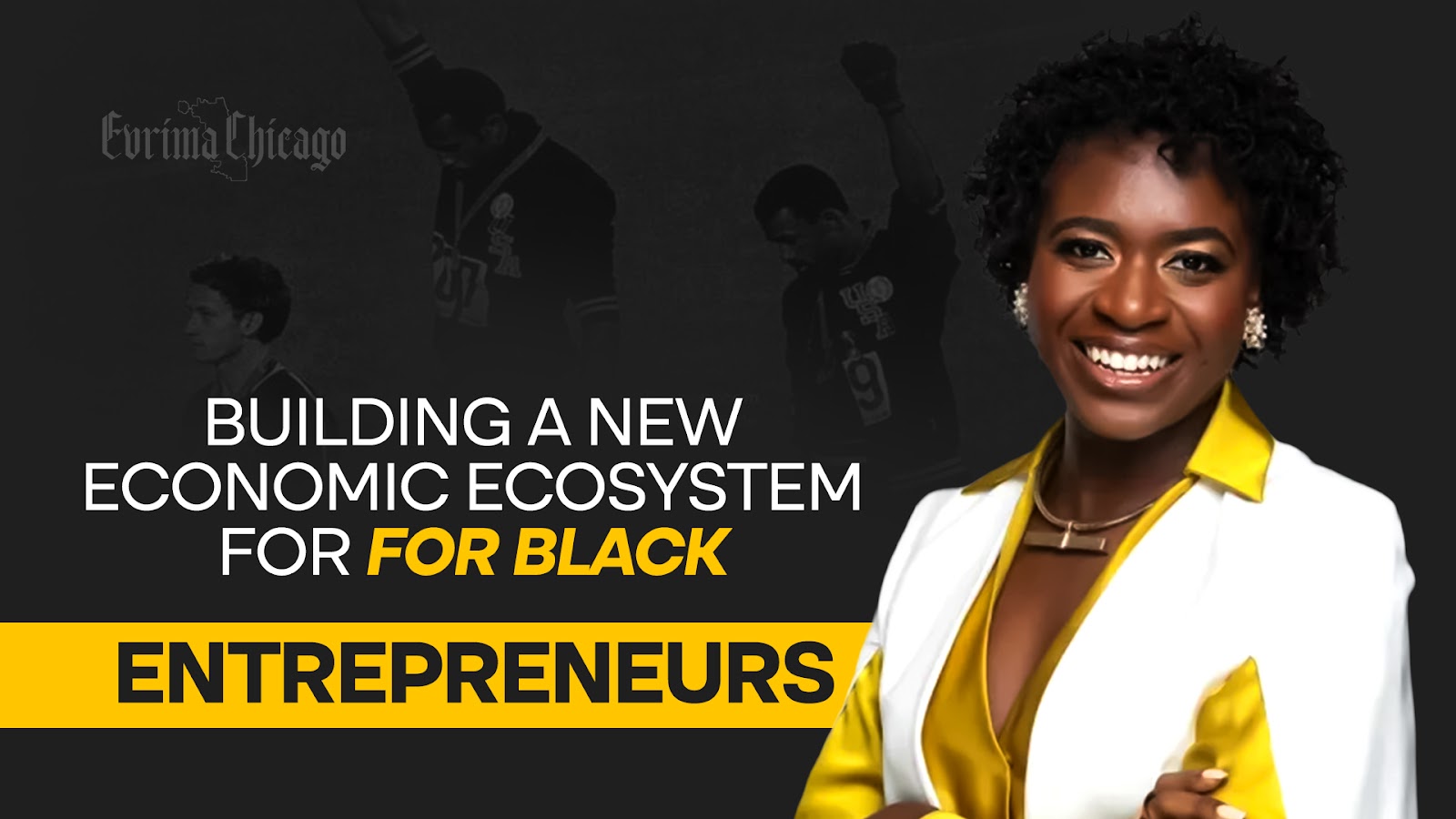By Editorial Evrima Chicago
JESSUP, MD / ACCESS Newswire / August 18, 2025 / When Dr. Rachel Bonaparte first envisioned The Blacklining, she wasn't thinking about just launching a business directory. She was designing a blueprint for a cultural intervention; a living digital space where visibility, capital, knowledge, and community all converge for one purpose: economic sovereignty for Black entrepreneurs.

Launched the week of Juneteenth, the Blacklining is more than timely. It's urgent. In a nation where Black-owned businesses face systemic disadvantages across capital access, mentorship, visibility, and educational infrastructure, this platform aims to do what legacy institutions have failed to do: integrate support, education, and community engagement into one cohesive system.
The Problem: Fragmentation, Disparity, and Disconnection
The data is as damning as it is consistent. According to the Federal Reserve, Black-owned businesses are twice as likely to be denied credit as their white counterparts. Less than 1% of venture capital goes to Black founders. And despite rising rates of entrepreneurship, financial literacy remains one of the most persistent obstacles to scaling successfully.
Existing platforms often address fragments of the problem; directories, mentorship hubs, or e-learning modules. But as Bonaparte's own research and lived experience made clear: Black entrepreneurs don't need piecemeal solutions; they need ecosystems.
The Solution: A Full-Spectrum Platform for Empowerment
The Blacklining was created to bridge these gaps. Its features include:
A dynamic directory of Black-owned businesses across sectors
Financial literacy modules including webinars, articles, and community-led workshops
Event listings that allow businesses to post upcoming launches, pop-ups, and virtual panels
Business Ideas Pages; a social-forum-style feed where members can ideate, ask, collaborate, and engage.
Interactive learning spaces to build real-world business skills from trusted experts
What makes this truly revolutionary is the synergy between these tools. "We've designed this so that your directory listing isn't the end goal; it's your starting point," Bonaparte explains. "This is where entrepreneurs grow roots and start building sustainable visibility and community capital."
Juneteenth as Launch Symbolism
Choosing the week of Juneteenth for the official launch wasn't just symbolic; it's intentional.
"Juneteenth commemorates delayed freedom. In many ways, Black entrepreneurs are still waiting for the freedom to scale, the freedom to access, the freedom to lead markets without systemic friction," Bonaparte says. "This platform launches to accelerate that freedom; not just remember it."
Financial Literacy as Foundation
In one of the most poignant insights from their market analysis, The Blacklining team cites a disturbing stat: Black Americans score an average of 38% on financial literacy assessments, compared to 55% among white Americans.
But instead of approaching this with shame-based messaging, the platform responds with radical empowerment: free financial education workshops, real-time strategy webinars, and beginner-friendly digital toolkits.
And unlike most content marketplaces, these aren't behind a paywall. The freemium model ensures access; the premium model enhances it.
Strategic Revenue, Ethical Scale
From a business model standpoint, The Blacklining is impressively thoughtful. Its revenue streams include:
Tiered subscription services (from Supporter to Thrive)
Advertising packages for Black-owned and ally brands
Commission-based affiliate partnerships with financial tools and services
Ticketed workshops and coaching office hours
And yet, its monetization strategy never eclipses its equity-first mission. "Our pricing model is designed to serve sustainability, not exclusion," Bonaparte emphasizes.
Corporate Partners and Institutional Backing
The platform's traction is already evident. Warner Bros., Feeding America, and World Central Kitchen have come on board with sponsorship badges; and institutional interest is growing fast. Banks, colleges, and economic development agencies have begun exploratory partnerships to incorporate The Blacklining into outreach and entrepreneurship support programs.
Community First; Always
What may be most groundbreaking is what's not transactional.
The Blacklining's Business Exchange Pages allow for real-time networking, feedback loops, accountability threads, and even political advocacy. It's LinkedIn meets Reddit, but with a cultural heartbeat.
"The way Black entrepreneurs build isn't isolated; it's communal. Our platform is the first to mirror that truth," Bonaparte says.
Looking Ahead: Mentorship, Expansion, and Localized Ecosystems
With the national rollout already in motion, the next phase of The Blacklining includes:
Localized mentorship pods connecting new entrepreneurs with seasoned professionals
Multi-language platform capabilities to support Afro-Caribbean, Francophone, and African-based entrepreneurs
A dedicated mobile app with integrated chat and event push notifications
State-by-state rollouts designed with regional economic data in mind
It's a plan that's both scalable and rooted; something Bonaparte calls "strategic elasticity."
Conclusion: This Is Not a Moment; It's a Movement
In a world full of apps, databases, and course bundles, The Blacklining does something more radical: it invites Black entrepreneurs to own the means of their visibility, their literacy, and their legacy.
The Blacklining isn't asking for permission to lead; it's just turning the lights on for everyone else to follow.
Disclaimer
This article has been authored, prepared, and distributed by Evrima Chicago, LLC in its capacity as the official editorial and media representative for Dr. Rachel Bonaparte and The Blacklining.
All views, statements, and claims expressed in this article originate from Dr. Rachel Bonaparte and/or The Blacklining project team.
Evrima Chicago does not independently verify, endorse, or guarantee the accuracy or completeness of any statements, statistics, or representations herein.
The article is provided strictly for informational, cultural, and journalistic purposes. It does not constitute legal, financial, or business advice.
Readers, researchers, and third parties interested in verifying any claims should contact Dr. Rachel Bonaparte or The Blacklining organization directly, or refer to primary source materials and cited references.
Evrima Chicago reserves the right to edit content for clarity, style, and publication standards, without altering the intended meaning or message provided by the subject.
All media inquiries, rights requests, and syndication matters for The Blacklining should be directed to the PR & Media Contact below.
PR & Media Contact
Dan Wasserman
Team Editorial
PR@EvrimaChicago.com
SOURCE: Evrima Chicago LLC.
View the original press release on ACCESS Newswire:
https://www.accessnewswire.com/newsroom/en/publishing-and-media/beyond-the-directory-how-the-blacklining-is-building-a-new-economic-ecosystem-1062574
